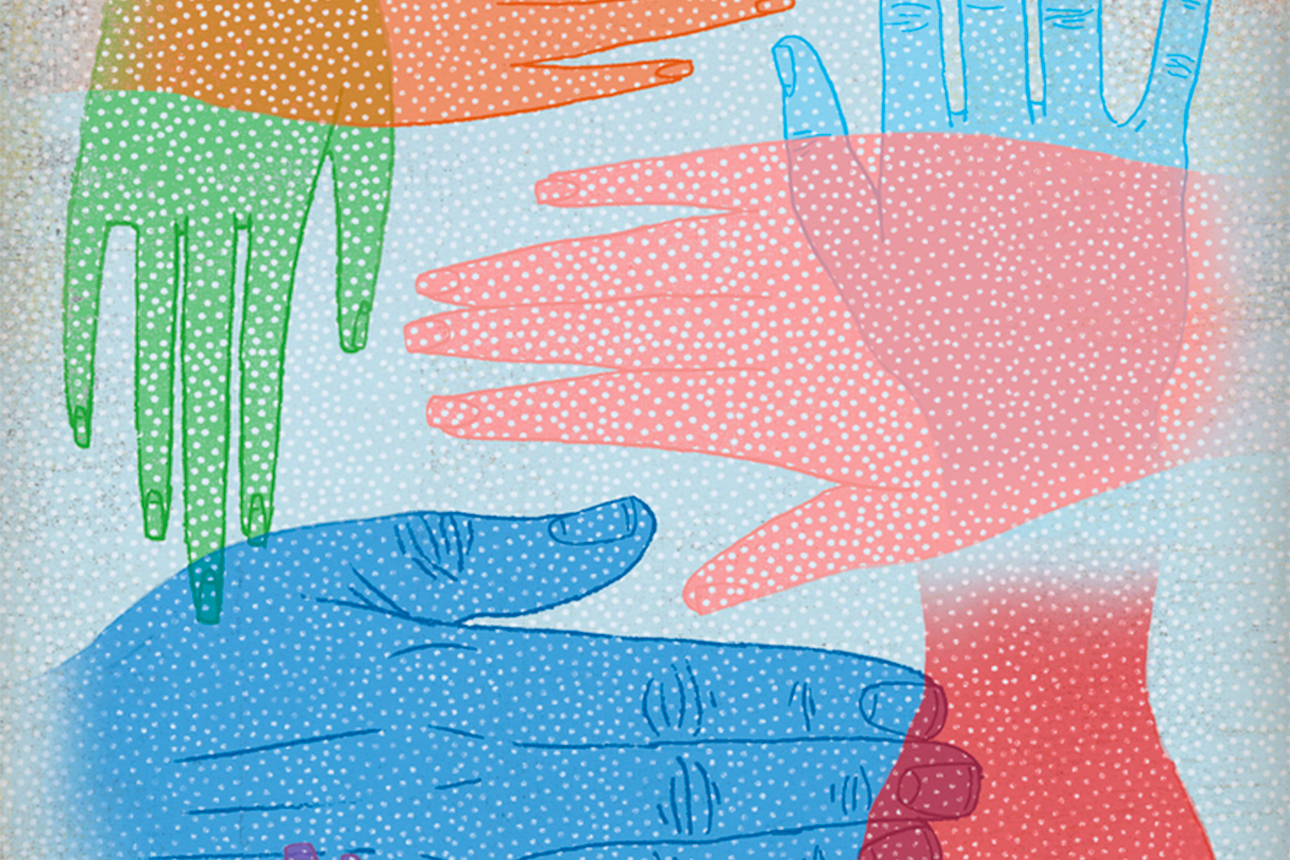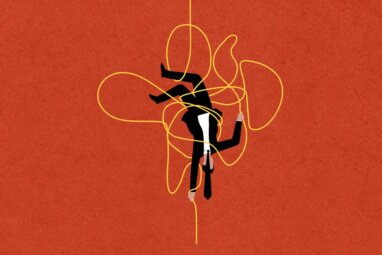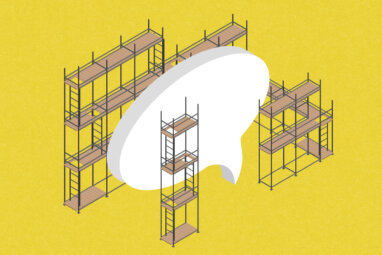Your People Need Care, Not a Battle Cry
Leaders are using the language of war to rally people in a fight against COVID-19. That’s a problem.
Topics

Image courtesy of Ken Orvidas/theispot.com
“We are at war,” French President Emmanuel Macron said gravely in one of his first evening messages about COVID-19 to the citizens of the country where I live. Five times he repeated it. My family and I were just beginning to adjust to our home confinement. I had not fully registered the battle imagery before then, but it was certainly there, in reports from the Italian “front line” and regions soon “under assault.” Two weeks later, by the time U.S. President Donald Trump said that watching doctors and nurses heading to work was like seeing “military people going into battle,” I felt besieged by the metaphor. It’s everywhere, in politics and business, and it might be doing us more harm than good.
I understand why people keep using it. Our physical bodies are at risk and our social bodies under strain. Our freedoms are restricted, our economies wrecked. There is a growing death toll. Many of us are sheltering in place while those who cannot stay home serve and protect us at great self-sacrifice.
I am also used to warfare metaphors. With all its talk of missions and strategic targets, management scholarship, my field, has long portrayed leaders in military camouflage. Executives themselves are now relying more heavily than ever on war talk. For many businesses, after all, each day is a battle for survival. And yet, language that evokes aggressive action and stoic resistance is problematic.
Here is why: War dehumanizes us, compelling us to put vulnerabilities aside and engage in overwork. I hear all this in the words of managers and workers I speak with every day, soldiering on, so to speak, while everything has changed around them. Bravely fulfilling their duties. Silently worried and overwhelmed, while their bosses push them to stay focused and forward them listicles on effective virtual work. I found myself drafted alongside them, joining the battle with my laptop and to-do list, until I realized that I was fighting for a tyrant: a ruthless inner voice telling me that I must remain productive or everything will be lost.
In these anxious times, when loss is all around, leaders must do more than peddle the illusion that putting up a fight with tips and tech — the ammunition of the virtual workplace — will eventually bring us back to normal. That message is not just exhausting. It is discouraging.
We can’t fight our way back to normal right now. People whose lives were changed forever by losing a loved one, or an old self through illness or trauma, have taught me that.
“It’s not a fight,” a colleague once told me, describing his experience with cancer. “I was no warrior. I was ill.” Like others I spoke with for an article on helping workers deal with loss and death, he told me that what he needed most wasn’t a rousing call to battle. He needed steady care. He needed his pain and fear to be seen and held, not to be pushed aside.
Research shows that people who have had a brush with death often become more focused, are less anxious, and have fewer doubts about what matters afterward. When you ask those who have endured major losses what helped them build a new life on the other side, many of them report what my colleague told me. Calls to fight are counterproductive. They raise anxiety, making a turn for the worse feel like a personal failure, a defeat. It is care that brings you back to life.
These days, all over the world, we celebrate health workers — doctors, nurses, paramedics — as heroes. But we should also learn from their example. Yes, they are on the front line. They are staring death down and sacrificing for strangers. But they are not quite fighting. They are caring. And in order to care for others, they must be seen and cared for too.
Humans too often squeeze their worries, fears, and needs through the funnel of aggression. That is usual in business — hence our fondness for the language of warfare. But this crisis is not business as usual, and leaders need better ways to show up and care for people going through loss.
To replace the military general with the clinician in our portraits and practice of leadership — and put a concern for care above one for dominance — requires us to challenge a long-standing dichotomy: the notion that leaders set missions and targets, while managers provide stability and care. That dichotomy is popular and widespread. (It is gendered, too.) And it leads us to overvalue those who act as leaders even when, as in a crisis, we need people in charge to have the skills of managers instead.
In the most hopeful of scenarios, we will look back at the COVID-19 pandemic as the time that we came to regard competent care as the work of leaders and to celebrate it as much as we do inspiring calls to arms. That might make heads of state and CEOs reconsider evoking warfare to prove they are still in charge.
As for myself, after I started working from home, I took a leaf from research by Wharton professor Adam Grant. In that study, people who had been removed from those who benefited from their work became more motivated and persistent after interacting with those beneficiaries. They even made more money once they stopped fighting for revenues and started caring for people.
I have combined the principle of putting care first with a practice from my medical training, one that is often in the news these days: triage. I put my to-do list aside and made a new list, a “to care” list. It does not have causes or tasks on it, only people. I arranged them in order of who needs my care first and who will benefit from it most. Anything on my old to-do list that does not affect those people has been scrapped, for the time being. I have been more productive, useful, and at peace since.
We cannot defeat loss. We must work through it and help others do the same. Before you set up that “Keep Calm and Carry On” wartime poster as your Zoom background, ask yourself: Is that the message you, your coworkers, and your family need most right now? I doubt that it is.









Comments (2)
Stephen Chan
Larry Bradley